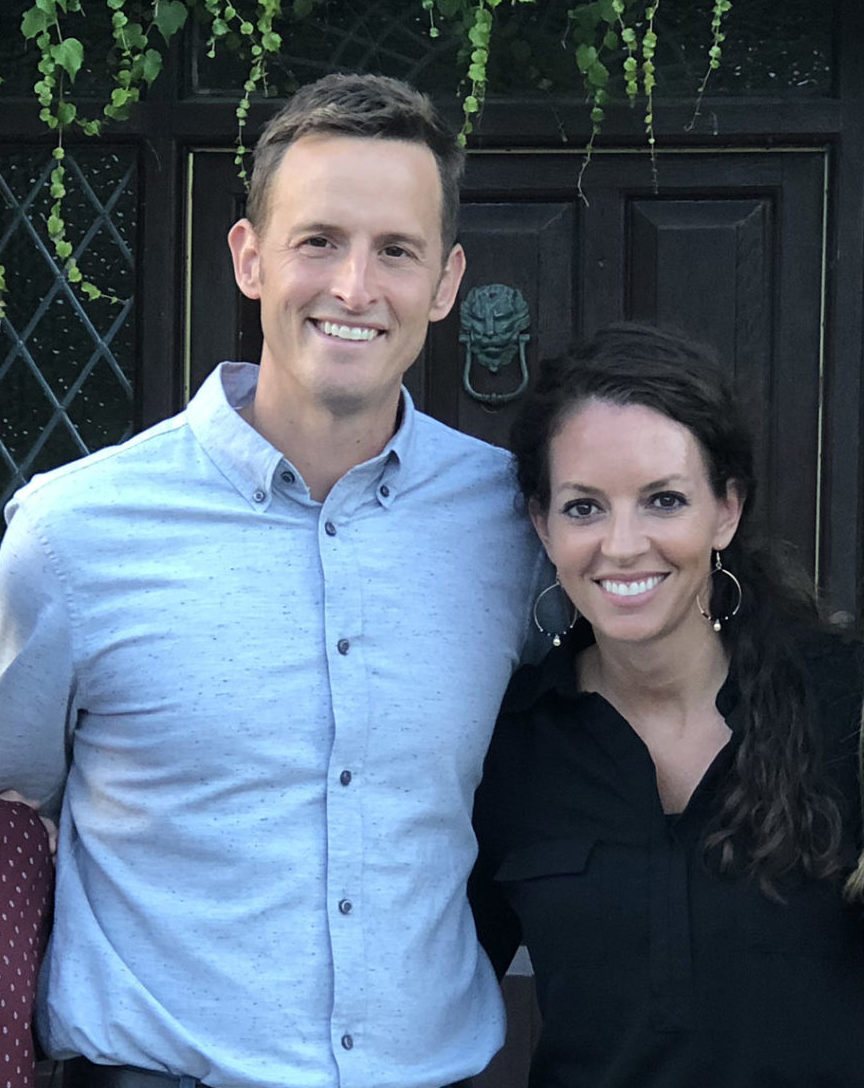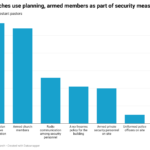
Our churches must be filled with people who are building deep friendships with each other and their unbelieving neighbors and coworkers.
By Ben and Lynley Mandrell
When visitors show up to your church, you probably have smiling extroverts propping open the doors. Ministry enthusiasts have been strategically stationed, armed with colorful handouts.
A hundred chit-chats create an energetic buzz and gallons of warm coffee lighten the mood. But a visitor sees a room of closed circles—busy people knee-deep in the weekly download. No one has unlocked eyes.
The new person shuffles as quickly as possible to the large room with rows, where they can sit quietly and check their social media feed until the music starts.
Getting off to a solid start with guests is important. And it’s critical to create a welcoming atmosphere. But in our experience, those who feel like “freshmen” step inside the lobby and feel overwhelmed by the sights and sounds.
Being welcoming is important to church guests and potential visitors, but being friendly isn’t enough. People are looking for beyond-the-surface connections.
When it comes to knitting meaningful friendships into the DNA of the church, most of us have good intentions. But our efforts often fall short.
Here are three problems most churches have when it comes to providing relational glue for their visitors and newcomers.
Problem 1: Churches aren’t as friendly as they think.
A 2019 survey found that 21% of Americans said they are lonely, including 30% of millennials. Months of social distancing in 2020 cannot have helped those percentages.
The local church is in a position to help combat the loneliness epidemic, but oftentimes when churches think about being “friendly” they concentrate on specific times on Sundays where people greet each other.
Loneliness won’t be solved simply by seeing someone smile once a week as we walk into a worship service.
When we planted our church in Denver, we were overjoyed to see some of our nonreligious friends popping in to check it out. After services, we would ask them for feedback and encouraged them to be honest.
They told us the greeting time felt phony and forced. I thought we were being friendly, but they didn’t enjoy the turn-and-say-hi-but-make-it-fast segment of the service.
After talking it through with the church staff, we chose to use this approach occasionally—not weekly—and when we did, we added a pinch of intentionality.
To make it easy, we would set up the moment by giving people a fun topic to discuss—something like, “Do you think the Broncos have a chance of winning today?” Everyone in Denver has a strong opinion on football. It worked.
Making your church friendly to guests and unchurched people will require more than a loud lobby or scheduled greeting times.
We have to carefully observe the guest experience and pay attention to their body language and natural paths as they enter.
We have to help them find their way into friendship. Most churches leave too much to chance and would benefit from having a leader observe the lobby and make notes. We aren’t as friendly as we think.
Problem 2: People are looking for friends, not friendliness.
Velcro has to be forced together if it’s going to stick. People often have a hard time bonding and feeling connected to others. Naturally, they wonder, “Does anybody here click with me?”
One of the most successful solutions we found in creating new connections was to set up a series of high-top round tables in the lobby (perhaps outside during COVID-19). A large sign was located above each table with words such as:
- Fishing
- Running
- Art
- Hiking
- Pickleball
At the end of the service, we challenged people to gather at the table that represented a hobby or passion of theirs.
The experiment was a huge hit and our staff was pumped to see people swapping phone numbers and setting up times to get together.
C.S. Lewis said, “Friendship is born at that moment one person says to another: ‘What? You too? I thought I was the only one!’”
Helping new people find their people inside the greater people is the ultimate challenge in church. Once a few genuine friendships are formed, the foreign place starts to feel like home.
If your church is concentrating on being surface-level friendly, you are missing out on meeting the deep need of friendship among your people and your community.
Problem 3: People are terrified of small groups, but they need to find one.
As a pastor, I was always amazed at how reluctant people were to search for a small group. I had to push it from the pulpit and make it sound mandatory without actually policing it.
I would say things like, “Are you new around here? Let us help you find your group. Sitting in this room every Sunday doesn’t qualify as community. You must join a small group where you can be known.”
Some would respond to the all-call announcements, but others remained at arm’s length with the church.
After doing some additional research, we discovered that many people had natural fears that prevented them from stepping into a small group:
- What if I’m asked about the Bible and don’t have a clue what they are talking about?
- What if they call on me to pray or read out loud?
- What if I don’t want to return because they are all really nice but not my tribe?
As we probed and discovered these fears, we began naming these issues in the service and giving people confidence that they wouldn’t be caught off-guard by these kinds of things.
As a result, our groups ministry grew and we continued to feed that ministry.
Is your church intentional about helping people find friends? Perhaps you could present these problems to your next team meeting and consider new and creative ways to grow in this area.
Our churches should be friendly, but they can’t stop there. They must be filled with people who are building deep friendships with each other and seeking to do the same with their unbelieving neighbors and coworkers.

Ben and Lynley Mandrell
Ben is the president and CEO of Lifeway Christian Resources. Lynley is his wife. Before coming to Lifeway, they spent five years in Denver, Colorado, planting a church designed to reach the unchurched. They are the parents of four and live just outside of Nashville, Tennessee.












